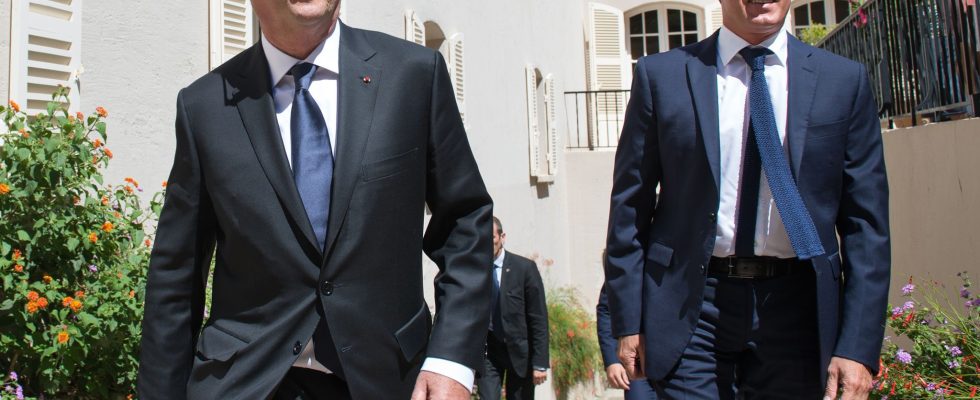When did the story turn around? When did the left “let go” of the suburbs? Those who run it today are pouting, say they don’t really know, accuse the Holland quinquennium as is customary. Maybe the story is older? “There has always been a malaise because this question questions the relationship with authority, which the left has softened since May 1968, and the liberal rise of individualism, in particular communitarianism, which the left has accompanied; it is a whole series of steps aside vis-à-vis the republican melting pot of which we were the founders, lists the PS deputy Philippe Brun. And when certain socialists responded to them, they did so in a caricatural way like Manuel Valls.
Electorally, the ground has long been fertile for the left in the blessed time of the “red belt” in Ile-de-France, these cities where trade unionism floods the bars of buildings which welcome workers from immigrant backgrounds since the Liberation . Nothing helped and people still died of not being from this country in the 1970s. In 1983, the murder of Habib Grimzi, thrown from a moving train, shook France. Mitterrand discovers the march of the Beurs who demand equality, well helped by Julien Dray and Harlem Désir. The duo politicizes the movement in the service of a PS already weakened by two years in power. SOS Racisme is born, and the Beurs become “friends” who should not be touched.
Over the years and suburban plans, neighborhoods continue to vote left. In elephants, everything seems acquired. “It’s reassuring but it’s always the same m… behind the last coat of paint”, will sing IAM. In 1998, the World Cup and black-white-beur France embraced each other. The left of Lionel Jospin sees in it a great republican reconciliation, infallible, which will lead him to victory. Cold shower. In 2002, on April 21, Chirac elected, the PS starts campaigning for the next time. Forgotten the suburbs which demonstrated against the FN. And then 2005, the slap. The band of SOS Racisme no longer has the influence of yesteryear. The internal struggles in the PS occupy much more. “Three weeks of riots every night. What next? Back to square one. Corrupt local elected officials have made a pact with thugs, Salafists and communities to have peace,” said Malek Boutih.
“What a fault!”
“However, there was an alert that no one took seriously: it was 2001,” recalls a friend of Boutih. The attacks of September 11, a turning point. “In Grigny, we saw kids celebrating the defeat of the Americans. We close our eyes because we are a bit anti-imperialist all the same, and they are only kids. What a fault!” At that time, the suburbs were not yet lost territories of the left. In 2007, Ségolène Royal defends “the just order”, proposes the military supervision of young delinquents. She is a full box in the electorate of the suburbs. In 2012, the hard line of Nicolas Sarkozy mobilizes in favor of Hollande. Elected, the left moves on. “There was not the change of gear hoped for. We are campaigning on the receipt of police control, it is one of the 60 commitments of Hollande. It speaks a lot to voters in the suburbs but Manuel Valls, Minister of the Interior, does not want to alienate the unions and closes the door to this campaign promise. It was a first denial”, recalls Jérôme Guedj who, a PS deputy at the time, beats his neck: “when we return to responsibility, seven years after the riots of 2005, we no longer identify the subject, and between 2012 and 2017 nothing is happening politically.” Julien Dray, he wants to be more severe: “the bankruptcy of education is the last dike that breaks under Holland.”
The left is deserting the suburbs, and the latter are turning their backs on it with the Valls line which is essential. Since nature hates emptiness, Mélenchon sets out to conquer. “After 2017, Jean-Luc sees that 600,000 votes are missing and they are in the neighborhoods. The instruction is to go get them”, says an Insoumis. New personalities emerge around the leader LFI, and in particular Danièle Obono who makes anti-racism her fight, assures that “France is imperialist”, denounces “State racism”. There is also Taha Bouhafs, often criticized for his uninhibited communitarianism. Proponents of the republican line like Adrien Quatennens don’t say a word. Those who do are punished. Mélenchon adapts, convinced of being the catalyst for an improbable convergence of all struggles – social, anti-racist, etc. The riots of 2023, bis repetita. Over the past ten years, the left has preferred to flatter the sad passions of the suburbs, putting salt on the wounds of history and abandoning its original republican promise: to change lives.
